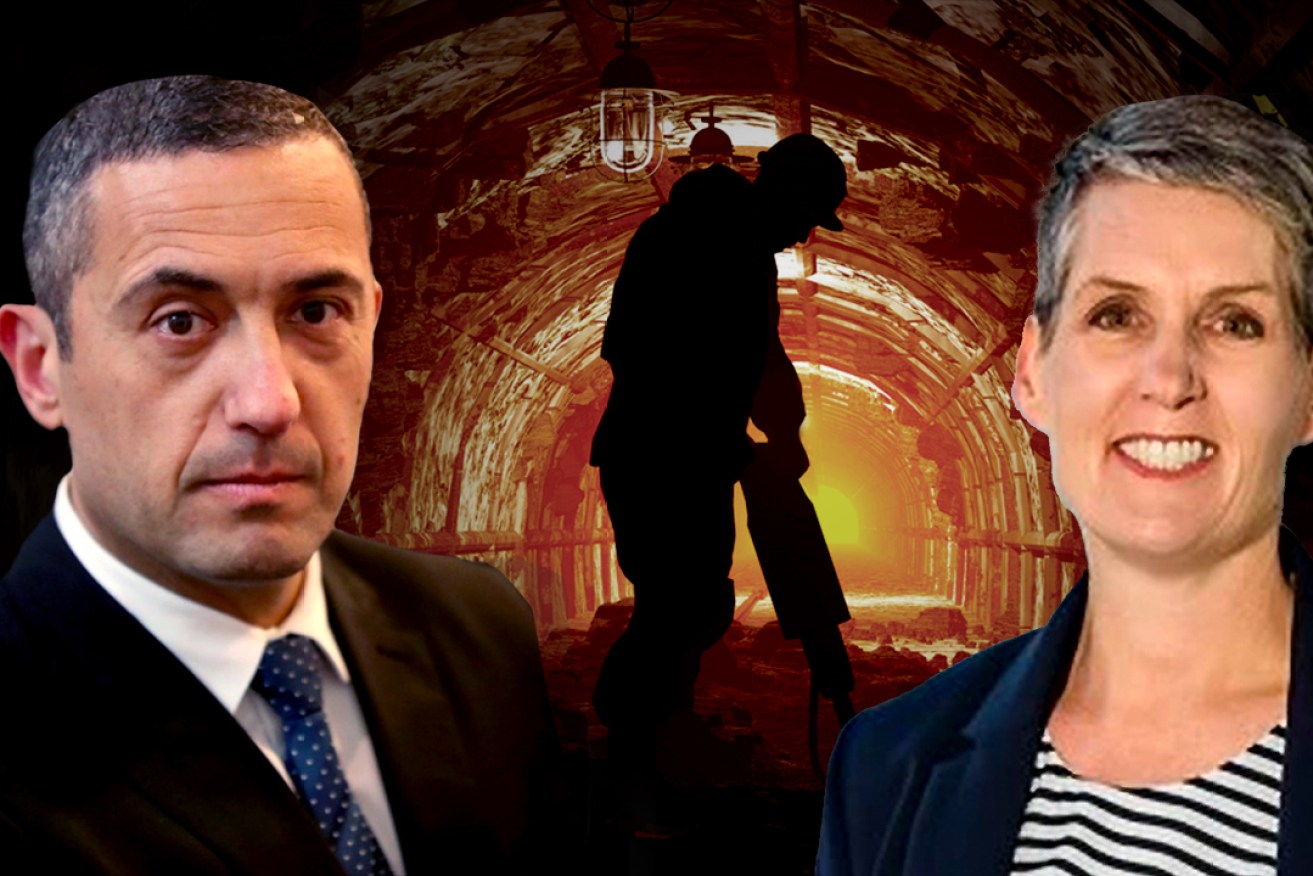Mining lobby digs in over ‘roadblock’ minister
South Australia’s peak mining industry group has branded Energy and Mining Minister Tom Koutsantonis the “biggest roadblock” to new projects in the wake of his refusing a Hills gold mine bid, their relationship deteriorating after two strong public criticisms this week.


Energy and Mining Minister Tom Koutsantonis, and SACOME chief executive officer Rebecca Knol. Photos supplied. Image: Tom Aldahn/InDaily
On Tuesday, the South Australian Chamber of Mines and Energy criticised the state government’s new voluntary Code of Practice for Explorers, saying it “suggests opportunism and a profound lack of understanding of established processes”.
Yesterday, it claimed that Koutsantonis had rejected an application by Terramin Australia to develop the historic Bird in Hand underground gold mine in the Adelaide Hills on “populist political grounds”.
SACOME chief executive officer Rebecca Knol said that the minister’s decision sent a clear message to investors that “even if you have a world-class deposit and invest millions to diligently meet the approval requirements, there is absolutely no assurance that you will receive a green light from this government”.
“It’s frustrating that despite jumping through multiple hoops and addressing the social, environmental, and regulatory requirements, the minister has chosen to ignore the advice of his own department and has opted to reject the project on populist political grounds,” Knol said.
“Since coming into government, the minister has continually asked the sector as to what the biggest roadblock is for projects coming online. The answer is obvious.”
Koutsantonis told InDaily that he was “surprised to see the nature of the rhetoric employed by SACOME this week” after many years of a positive working relationship.
“Given their responses to both issues went well beyond their equivalent response when the former Marshall Liberal Government backed a 10-year fracking ban in the South East, and given the intensely and – in my view – unnecessary and unfortunate personal nature of their recent critiques, one may argue SACOME’s responses this week have been disproportionate,” he said.
Koutsantonis said in both his previous seven years as Mineral Resources and Energy Minister and since returning to government last year, he had “enjoyed and appreciated a positive working relationship with SACOME”.
“I meet regularly with SACOME, whose CEO Rebecca Knol has probably had more access to my office than any industry leader since Labor came to government,” he said.
“Between June and December last year, I met with her on six separate occasions to discuss the opportunities and challenges facing the mining sector.”
Knol made no apologies for her criticism, saying SACOME was fully member funded and advocated with “true independence”.
She said SACOME’s role was to “drive debate, facilitate opportunity, bring stakeholders together and advocate for and on behalf of the South Australian resources sector and the state – without fear or favour from the government of the day”.
“SACOME works closely and proactively with many stakeholders, including the minister and ministerial staff, for the continued development of the resources sector and the economic, social, and environmental benefit of the state,” Knol said.
Koutsantonis said the Bird in Hand mine applications were comprehensively assessed including through an eight-week statutory public consultation.
However, despite the Energy and Mining Department advising the proposal met relevant statutory obligations, Koutsantonis declined the project saying this took into account broader state interests.
He said the mine would have a short-term life but the potential impact on surrounding businesses including world-class wineries Petaluma and Bird In Hand along with regional tourism could have longer-term implications.
When SACOME criticised the voluntary code of conduct earlier this week it raised concerns it would duplicate existing guidelines, increase red tape and costs, stifle investment and fail to improve land access outcomes.
“Implementation of this code suggests opportunism and a profound lack of understanding of established processes,” Knol said.
Koutsantonis said that “I note that the code, whose auditing provisions are also entirely voluntary, received warm support from a number of SA-based mining companies as well as AMEC, the peak national industry representative body for mineral exploration and mining companies”.
He said “from my perspective” there was still a good working relationship moving forward with SACOME and that he is happy to continue to meet with SACOME on any matters the group wants to discuss.




